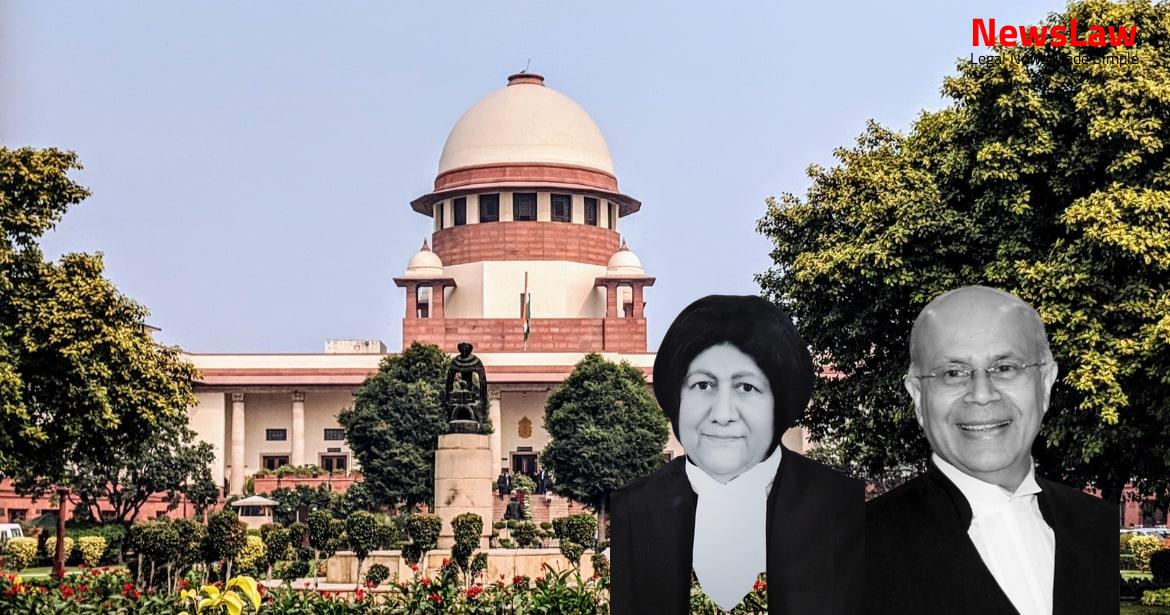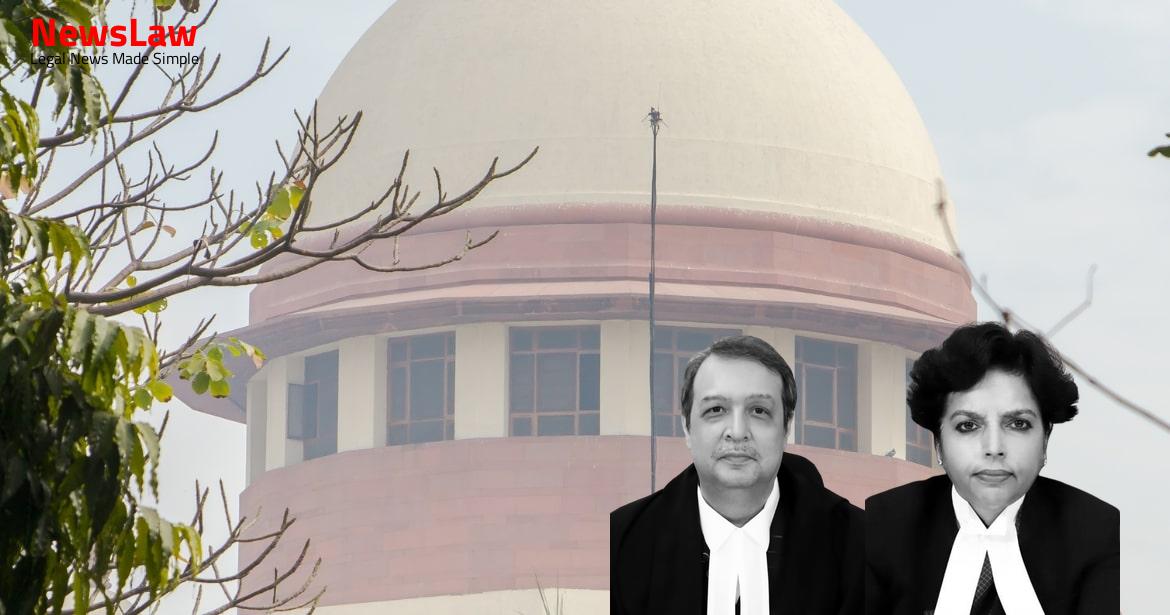Explore the intricate legal analysis by the court on the concept of Permanent Establishment in international taxation. This case delves into the significance of functional and factual analysis in determining the presence of a PE, as well as the application of Double Taxation Avoidance Agreement provisions in resolving tax disputes. The analysis underscores the complexity and importance of the PE concept, emphasizing the relevance of establishing the nature and scope of a PE in international tax matters.
Facts
- The Assessee filed a Return of Income for Assessment Year 2007-2008 showing nil profit due to an alleged loss incurred in India.
- An show-cause notice was issued to the Assessee questioning the nil profit claim, which was replied to in detail.
- A Draft Assessment Order was passed by the Assessing Officer on 31.12.2009, explaining the Project as a single indivisible turnkey project completed in India.
- Pre-engineering activities abroad occurred in 2006, followed by the installation of platforms outside Mumbai in 2007.
- The Appeal by the Department focuses on the taxability of income from a permanent establishment in India under the DTAA with the Republic of Korea.
- ONGC awarded a turnkey contract to the Assessee for the Vasai East Development Project in 2006, leading to the establishment of a Project Office in Mumbai in 2006.
- Draft Order attributed 25% of revenues allegedly earned outside India as the income of the Assessee, totaling to INR 28,35,94,740.
- High Court noted no finding that 25% of gross revenue outside India was attributable to the business carried out by the Project Office.
- Neither the Assessing Officer nor the ITAT provided evidence to justify the 25% figure.
- Dispute Resolution Panel noted the Assessing Officer’s finding that the Assessee had a project office in India during the contract.
Also Read: Legal Analysis on Physical Ability in Rape Case
Issue
- High Court focused on the question of whether the Agreement allowed the Indian Tax Authority to allocate revenue to the permanent establishment in India.
- High Court did not delve into whether the Project Office in Mumbai constituted a fixed place PE.
- Five substantial questions of law were framed by the High Court, mainly revolving around the existence and taxation of the fixed place PE in India.
- Challenges to the findings of the Tribunal regarding the project office and its role in the VED project were raised before the High Court.
Also Read: Legal Analysis on Admissions and Document Consideration in Insolvency Case
Arguments
- The ld. DR contends that the company opened a project office in Mumbai for coordinating and executing the Vasai East Development Project for ONGC in India.
- The absence of any restriction in the application to RBI, resolutions passed by the assessee company, and permission from RBI suggests that the Mumbai project office was a fixed place of business for carrying out the impugned contract in India under DTAA Article 5.1.
- All activities related to the impugned contract were to be routed through the project office as evidenced by the documents provided.
- The Appellant argues that the turnkey project was indivisible and all revenue earned would be taxable in India.
- The Project Office had not incurred any expenditure on the project execution based on the produced accounts.
- Argument presented that the burden of proof lies on tax authorities to establish a foreign Assessee’s permanent establishment in India, which was not done in this case.
- Even if a permanent establishment exists for core business activities, no taxable income can be attributed as the audited accounts demonstrated project only incurred losses.
- Relevant provisions of the DTAA were outlined before proceeding with the arguments.
- Reference made to Hyundai Heavy Industries Co. Ltd. case, suggesting similarity in facts and applicability to the present case.
Also Read: Analysis of Transfer of Winding Up Proceedings to NCLT
Analysis
- The Assessing Officer distinguished the judgment in Commissioner of Income Tax and Another v. Hyundai Heavy Industries Co. Ltd., (2007) 7 SCC 422 based on the project’s structure in the present case.
- It was found that the work related to fabrication and material procurement was an integral part of the project executed by the Indian company, making it absurd to suggest otherwise.
- Deputation of certain employees from the American Company to the Indian Company resulted in the establishment of a ‘service’ permanent establishment.
- Hyundai Heavy Industries Co. Ltd. (supra) judgment was referenced heavily, with differing interpretations presented by Shri S. Ganesh and Shri N. Venkataraman.
- The court, in a similar case, ruled that profits accrued to a foreign entity from operations in India were not taxable, emphasizing the distinction between a business connection and income arising from it.
- The judgement delves into the concept of Permanent Establishment (PE) and its relevance in determining tax liability under the Double Taxation Avoidance Agreement (DTAA).
- The analysis involves a detailed examination of various provisions of the DTAA related to PE, including Article 5 which defines the types of PEs such as fixed place of business PE, service PE, and agency PE.
- The judgement highlights the importance of functional and factual analysis in determining the existence of a PE, particularly in cases where composite contracts are executed in multiple jurisdictions.
- It discusses the applicability of Article 5(1) of the DTAA and emphasizes the role of back office operations in establishing a fixed place PE.
- Various legal precedents and case laws related to PE under DTAA are cited to support the analysis.
- The determination of taxability based on the functional activities carried out by an establishment is a key factor in establishing the presence of a PE.
- The judgement also addresses the distinction between business connection and permanent establishment in the context of tax liability for non-residents.
- The relevance of Board Resolutions, agreements, and correspondence in establishing the presence and scope of a PE is highlighted.
- Overall, the analysis underscores the complexity and significance of the PE concept in international taxation and the application of DTAA provisions in resolving tax disputes.
- A permanent establishment is defined as a place through which an enterprise carries on business in another Contracting State.
- The profits attributed to a permanent establishment should reflect what it would make as a separate enterprise engaged in similar activities independently.
- Examples of permanent establishments include places of management, branches, offices, factories, workshops, mines, oil or gas wells, quarries, and other natural resource extraction sites.
- Activities like construction projects or supervisory activities are also considered permanent establishments if they last more than nine months.
- Certain activities are excluded from the definition of a permanent establishment, such as using facilities for storage or display only, maintaining a stock of goods solely for storage or processing, or having a fixed place of business for specific purposes like advertising or research.
- Business profits of an enterprise are taxable only in the State where the enterprise is located unless it operates through a permanent establishment in another State.
- Assessee has the onus to show the existence of a permanent establishment.
- In the case of two persons working in the Mumbai office, neither qualified to perform core activities, no permanent establishment was established.
- No fixed place of business for core business activities has been set up as per DTAA Article 5(1).
- Mumbai Project Office falls under Article 5(4)(e) of the DTAA, serving as an auxiliary office for liaison purposes.
Decision
- The appeal against the High Court judgment is dismissed
- The dismissal is based on the reasons provided by the court
- No need to address any other arguments raised
Case Title: DIRECTOR OF INCOME TAX -II NEW DELHI Vs. M/S SAMSUNG HEAVY INDUSTRIES CO. LTD (2020 INSC 460)
Case Number: C.A. No.-012183-012183 / 2016



